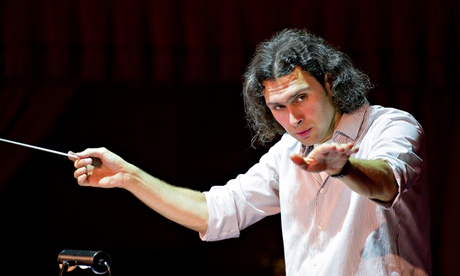
Vladimir Jurowski has long been an advocate of Alexander Zemlinsky (1871-1942), regularly programming his music alongside that of Gustav Mahler, whom Zemlinsky idolised, and with whose wife Alma he was also in love. The two works here constitute a vicarious response on his part to the Mahlers' marital crisis of 1910, when Alma began an affair with the architect Walter Gropius, who became her second husband. Zemlinsky took Mahler's side. Both the Maeterlinck Songs of 1910 and the one-act opera A Florentine Tragedy of 1917 allowed him to give vent to his ambivalent feelings for Alma in music of considerable distinction and force.
Dealing with shadowy triadic relationships and multiple betrayals, the songs are scored for mezzo and smallish orchestra, and the contours of the vocal lines and the sinewy instrumentation carry deliberate echoes of Mahler's own songs. Other forces beside the Mahler menage were at play in the genesis of A Florentine Tragedy: Zemlinsky, envious of the success of Strauss's Salome, was also intent on creating a big exercise in post-Romantic psychopathology. Like Salome, the opera derives from a play by Oscar Wilde, dealing with the frustrated Florentine merchant Simone, who only succeeds in arousing his sexually dissatisfied wife Bianca when he throttles her lover Guido to death in front of her. Audiences in 1917 found it dated. Nowadays we are apt to find it voluptuous and extreme, if unwieldy in shape. Alma, for the record, immediately recognised herself as Bianca and never forgave Zemlinsky.
Both performances were recorded at the Festival Hall, the songs in 2010, the opera two years later. Jurowski's belief in both is never in doubt and his thoughtful yet intense conducting is matched by playing of exquisite if sinister detail from the London Philharmonic. Petra Lang is pushed beyond her limits in places in the Maeterlinck Songs, though Heike Wessels (Bianca), Albert Dohmen (Simone) and Sergei Skorokhodov (Guido) are frighteningly vivid in the opera. The awkward voice-orchestra balance in the hall during A Florentine Tragedy has been smoothed out by the engineers and the recording is as sumptuously clear as one could wish.

